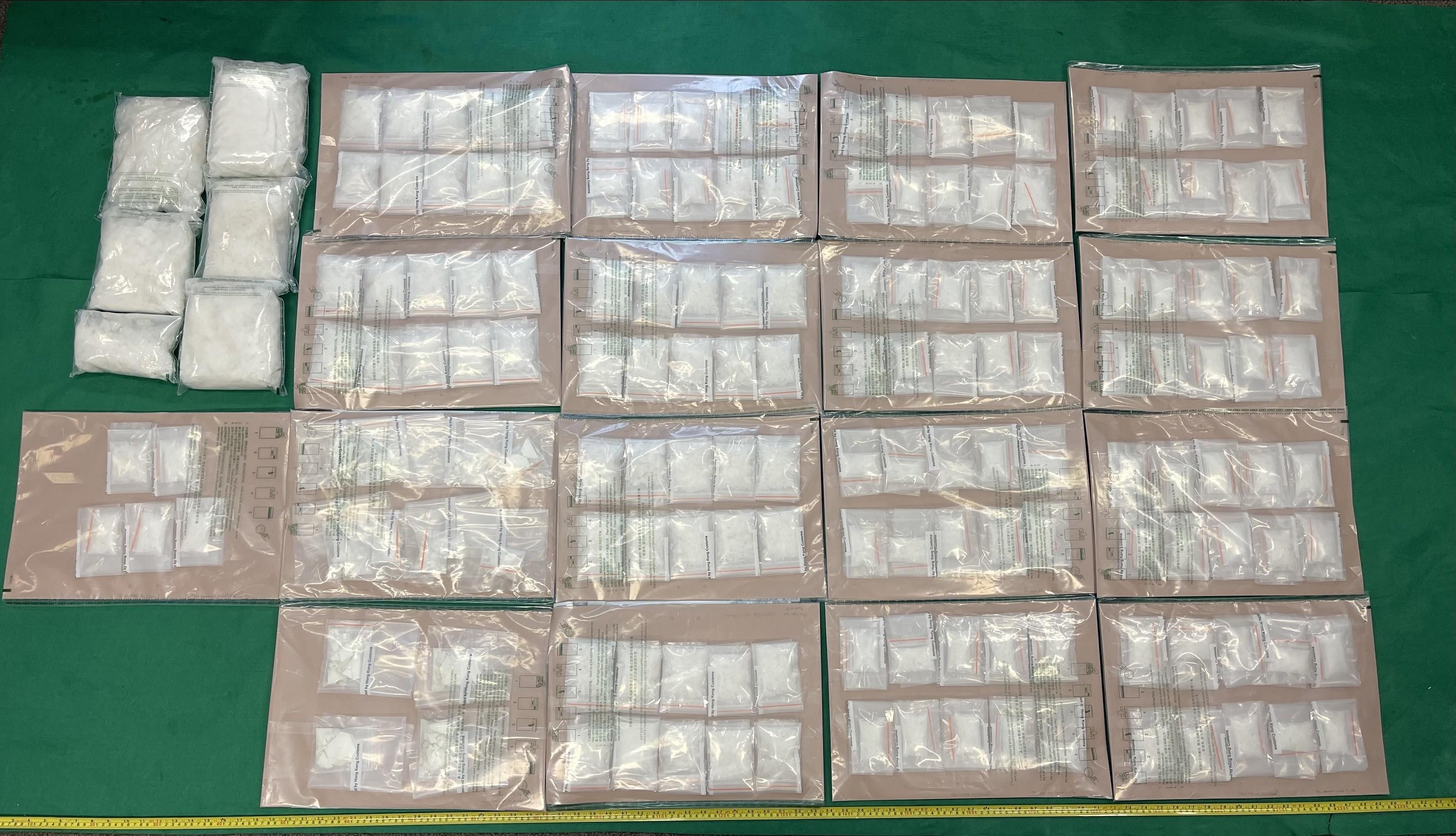Hong Kong Customs seizes suspected dangerous drugs worth about $5.2 million (with photo)
​Hong Kong Customs seized about 5 kilograms of suspected methamphetamine at the Shenzhen Bay Control Point on April 18, and about 3.5kg of suspected methamphetamine and about 300 grams of suspected heroin at Quarry Bay yesterday (May 22). The total estimated market value was about $5.2 million.
Customs on April 18 inspected an express parcel, posted from the United States and declared as books, at the Shenzhen Bay Control Point. Later, several wooden book boxes, which concealed about 5kg of suspected methamphetamine, were found inside the parcel. After a follow-up investigation, officers conducted a controlled delivery operation in Quarry Bay yesterday and arrested a 30-year-old man suspected to be connected with the case. More seizures, including about 3.5kg of suspected methamphetamine, about 300g of suspected heroin and a batch of suspected drug packaging paraphernalia, were made at a nearby residence.
The arrested man, who claimed to be unemployed, has been charged with one count of attempting to traffic in a dangerous drug and one count of trafficking in a dangerous drug. He will appear at the Eastern Magistrates' Courts tomorrow (May 24).
Under the Dangerous Drugs Ordinance, trafficking in a dangerous drug is a serious offence. The maximum penalty upon conviction is a fine of $5 million and life imprisonment.
Members of the public may report any suspected drug trafficking activities to Customs' 24-hour hotline 2545 6182, its dedicated crime-reporting email account (crimereport@customs.gov.hk), or online form (eform.cefs.gov.hk/form/ced002).
